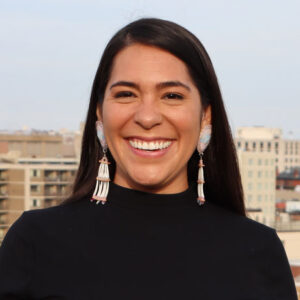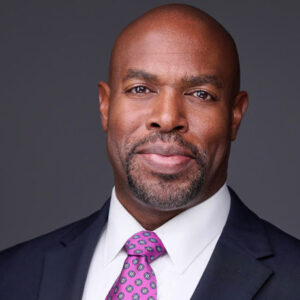Annie Fisher Montessori Magnet School
Annie Fisher Montessori Magnet School
Maintaining Authenticity Amid the Press for Student Achievement
In the four years since opening its doors in 2008 as Hartford, Connecticut’s second public Montessori program, Annie Fisher Montessori Magnet School (AFMMS), has found a winning strategy for making Montessori a viable solution to the achievement gap.
The solution, it turns out, is to lead with Montessori.
Launched as part of then superintendent Steven Adomowski’s “all choice” plan to transform the state’s lowest performing and most segregated school system, Annie Fisher was conceived to be a model of high quality, urban Montessori implementation. One of several “pathways” – arts, STEM, expeditionary learning – designed to capture students early and to provide a coherent trajectory to post-secondary school success, Annie Fisher’s Primary through Upper Elementary program (ages 3-12) will eventually extend to serve middle and high school students.
In 2012 Association Montessori Internationale (AMI) awarded AFMMS full Recognition, the organization’s highest level of certification. Annie Fisher is the only public Montessori program nationwide that is currently awarded this status. It is also the only Montessori program in Connecticut (public or private) to receive Recognition at the elementary level.
What does Recognition mean? And why does it matter?
Achieving AMI Recognition means that, based on close observations of classroom practice conducted by Montessori experts, Annie Fisher is delivering a full implementation of Montessori pedagogy. Among other things, that means preservation of three-hour uninterrupted word periods and three-year age groupings and maintaining learning environments that are fully equipped with Montessori materials, and teachers – or “guides” – that are Montessori trained at the appropriate level in every classroom.
Annie Fisher is also meeting state expectations with regard to standardized test scores. “Ensuring delivery of great Montessori instruction is our best strategy,” comments Principal John Freeman. Having served previously as a Montessori guide at the elementary level and a reading specialist for Hartford Public Schools, Freeman knows firsthand the importance of meeting state expectations with regard to student achievement. “A Montessori student emotionally secure and socially adept naturally drinks in the Montessori curriculum. This student is 98% prepared to take our district’s triennial benchmark assessments,” says Freeman.
The other 2% is handled through a comprehensive early intervention process designed to catch learning difficulties before they turn into disabilities.
Grounded in the Montessori principle of ongoing child study, Annie Fisher’s approach to addressing challenges relies on the collective wisdom of their instructional teams. In turn, teams receive support from Montessori coaches who provide ongoing, contextualized, professional development.
“For the first two years, most of our professional development took place outside of school. As a result, we saw very limited growth in the capacity of guides to meet the needs of a diverse population within the Montessori frame,” states Freeman. After a year and half of reflective practice guided by embedded Montessori-trained coaches, however, Freeman notes significant growth among his faculty.
The result is a program that revolves emphatically around core Montessori practice.
Which isn’t to say that modifications to the prepared environment never occur. Rather, proposed changes are analyzed and, as Slade puts it, “Montessori-ized” so as to maintain the coherence of the core program.
For instance, meeting the needs of children with language challenges calls for a proactive approach. “We have intensified the focus on Spoken Language in the Primary,” explains Freeman. That means an even more intentional emphasis on lessons that feature conversation.

Like many exemplary schools, Annie Fisher’s success in closing the achievement gap is the result of purposeful and effective leadership. In this case, leadership is shared by a team composed of two Montessori instructional coaches (one for each program level), an Operations Director, and Principal John Freeman. The team meets weekly to map strategy for everything from responding to family crises to organizing a weekend parent workshop to addressing the latest district literacy mandate.
Uma Ramani and Elizabeth Slade each trained at the Primary and Elementary levels, and both have worked in independent as well as public school programs. Maggie Dones came to Annie Fisher with extensive experience in Human Resources at the district level. Her management of daily operations such as scheduling, transportation, and procurement enables the team to stay focused on instructional matters. “Every public Montessori school needs such an advocate to flourish,” comments Slade, speaking of Freeman, “Otherwise much of the coach’s time is spent integrating the array of district mandates that can derail the core program.”

 Cheyenne is a Seminole and Chilean woman, advocate for Indigenous people and a former Miss Indian World. She has utilized her platform as an ambassador to advocate for environmental protections of the Florida Everglades, overturn adverse stereotypes and stigmatizations of mental health in tribal communities, encourage healing through identity and self love, and combat the negative, stereotypical narrative of Native and Indigenous people through education.
Cheyenne also provides motivational speaking presentations, empowerment workshops, pageantry coaching, cultural and historical consulting, hosts and emcees, and presents on topics such as culture as prevention, identity, human trafficking, domestic violence, and much more. She strives for authenticity and to live a healthy life physically, mentally and spiritually through her culture and teachings.
Cheyenne is a Seminole and Chilean woman, advocate for Indigenous people and a former Miss Indian World. She has utilized her platform as an ambassador to advocate for environmental protections of the Florida Everglades, overturn adverse stereotypes and stigmatizations of mental health in tribal communities, encourage healing through identity and self love, and combat the negative, stereotypical narrative of Native and Indigenous people through education.
Cheyenne also provides motivational speaking presentations, empowerment workshops, pageantry coaching, cultural and historical consulting, hosts and emcees, and presents on topics such as culture as prevention, identity, human trafficking, domestic violence, and much more. She strives for authenticity and to live a healthy life physically, mentally and spiritually through her culture and teachings. 
